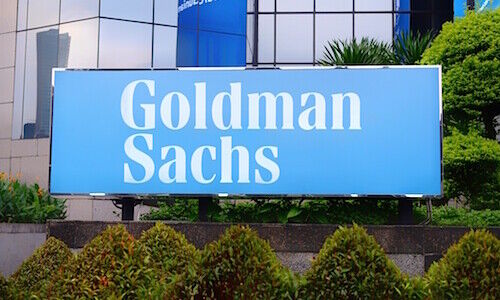George Soros Launches Media Offensive Against China’s President
Billionaire investor George Soros has been on a media offensive in the past few weeks, with scathing criticism against China's President Xi Jinping and a warning to the world’s largest asset manager.
In just a matter of weeks, billionaire founder and chair of Soros Fund Management and Open Society Foundations George Soros delivered three op-ed pieces criticizing China’s current leader, his impact on markets and financial firms facilitating foreign investments into the country.
His comments coincide with recent uncertainty in Chinese stock markets driven in part by Beijing's regulatory crackdown on numerous sectors including e-commerce, education, gaming and more.
Xi Jinping
In all his op-ed articles, Soros pointedly targets China’s President Xi Jinping, repeatedly saying that the 68-year old leader does not understand how financial markets operate and claims that he is «the most dangerous enemy of open societies in the world».
«Because many of the political class and business elite are liable to oppose Mr. Xi, he must prevent them from uniting against him. Thus, his first task is to bring to heel anyone who is rich enough to exercise independent power,» Soros said in a «Wall Street Journal» report published in mid-August, the first of his three recent commentaries.
«That process has been unfolding in the past year and reached a crescendo in recent weeks. It started with the sudden cancellation of a new issue by Alibaba’s Ant Group in November 2020 and the temporary disappearance of its former executive chairman, Jack Ma. Then came the disciplinary measures taken against Didi Chuxing after it floated an issue in New York in June 2021. It culminated with the banishment of three U.S.-financed tutoring companies.
«Instruments of a One-Party State»
According to Soros, the recent sell-off was «allowed to go too far» and he called the current rebound an act of «deception».
«Chinese financial authorities have gone out of their way to reassure foreign investors and markets have responded with a powerful rally. But that is a deception,» Soros said in a second commentary published weeks after the last in a «Financial Times» report. «Xi regards all Chinese companies as instruments of a one-party state. Investors buying into the rally are facing a rude awakening.»
Although Soros Fund Management was a notable investor in Didi and added numerous positions in U.S.-listed Chinese firms following the Archegos collapse in March and April, it has since exited many of these investments, according to U.S. filings. They include American depository receipts in Baidu Inc., Vipshop Holdings Ltd., Tencent Music Entertainment Group and IQiyi Inc.
Blackrock
In addition to Xi, Soros also targeted the world’s largest asset manager, Blackrock, over its expansion in mainland China and its facilitation of foreign investments into the nation with a recent recommendation to boost exposure in the country by as much as three-fold.
«Pouring billions of dollars into China now is a tragic mistake,» Soros said in the third and most recent commentary, published in another «WSJ» report.
«It is likely to lose money for Blackrock’s clients and, more importantly, will damage the national security interests of the U.S. and other democracies.»
ESG by Law?
In addition to criticisms, Soros made a noteworthy suggestion in his commentaries that the U.S. should pass a bill that could limit fund flows into Chinese companies that endanger investor interests.
«The U.S. Congress should pass a bipartisan bill explicitly requiring that asset managers invest only in companies where actual governance structures are both transparent and aligned with stakeholders. This rule should obviously apply to the performance benchmarks selected by pensions and other retirement portfolios,» Soros proposed.
«If Congress were to enact these measures, it would give the Securities and Exchange Commission the tools it needs to protect American investors, including those who are unaware of owning Chinese stocks and Chinese shell companies. That would also serve the interests of the U.S. and the wider international community of democracies.»
Historical Views
Although Soros has notably upped his media offensive as of late, his harsh criticism against Xi is not new.
During the World Economic Forum in January 2019, he once again called Xi «the most dangerous opponent of those who believe in the concept of open society» and lambasted China's social credit system and use of artificial intelligence.
Interestingly, Soros, who has actively engaged China since 1984, has historically held positive views about the country prior to Xi’s appointment as its top leader. In a 2010 comment about shifting power and influence, he said that China had «not only a more vigorous economy but actually a better functioning government than the United States».
Blackrock, China Responses
In response to Soros’ comments, Blackrock – the first wholly foreign-owned mutual fund firm in the mainland – said that the U.S. and China have a «large and complex economic relationship».
«Total trade in goods and services between the two countries exceeded $600 billion in 2020,» according to a spokesperson on the same day the firm announced that it had raised over $1 billion in its first onshore fund. «Through our investment activity, U.S.-based asset managers and other financial institutions contribute to the economic interconnectedness of the world’s two largest economies.»
Separately, Chinese state media «Global Times» also responded to Soros’ criticism, calling him a «global economic terrorist», «the son of Satan» and «the most evil person in the world».























